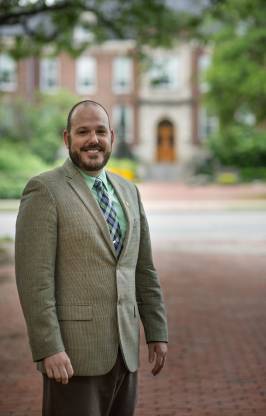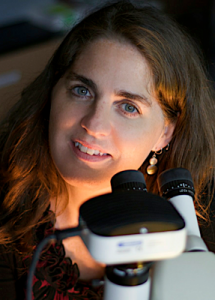The University of Guelph will receive $1.5 million through a new Canada Research Chair (CRC) and the renewal of two others. Kirsty Duncan, federal minister of science, made the announcement today in Toronto. In all, there are 203 new and renewed chairs at 48 institutions across Canada, an investment of $173 million.

Guelph received a new Tier 2 chair in Food Nanotechnology to be held by Prof. Michael Rogers, Department of Food Science. Tier 2 chairs held by Prof. Nina Jones, Department of Molecular and Cellular Biology, and Carla Rice, Department of Family Relations and Applied Nutrition, were renewed.
Tier 2 chairs are for potential world leaders in their fields and are worth $100,000 a year for five years.
“All three chairholders awarded today are outstanding scholars and leaders in their respective disciplines,” said Malcolm Campbell, vice-president (research).
“Covering expertise in food nanotechnology to disease treatment to inclusiveness, well-being and equity, these three chairs represent the exceptional and diverse creative capacity that distinguishes our campus. They also epitomize a focal point of our research here at University of Guelph: improve life.”
Rogers said U of G, known as Canada’s Food University, is “the perfect home” for his new chair, as the University supports fundamental research that drives innovation within Canada’s food industry.

He studies technologies that may improve safety and nutritional and functional qualities of processed foods that are now a mainstay in western diets.
“There is no greater societal importance then the effect diet is having on the global population,” said Rogers, a Guelph graduate. He said that, for the first time in human history, non-communicable diseases often related to diet cause a larger percentage of deaths than communicable diseases worldwide.
“This has led global health leaders to shift attention from ‘germs’ to what United Nations Secretary-General Ban Ki-moon calls ‘a public health emergency in slow motion.'”

Jones holds the CRC in Eukaryotic Cellular Signalling. She studies the molecular mechanisms that allow cells to communicate. By learning more about development, kidney function, blood vessels and the nervous system, she hopes to help develop new treatments for such afflictions as renal disease and cancer.
Rice holds the CRC in Care, Gender and Relationships. Her leading-edge social science institute uses visual, digital and sensory methods to look at and discuss new ways of conceptualizing difference, and how it can be applied in health, education, business and the arts.
The federal government established the CRC program in 2000 to attract and retain outstanding faculty at Canadian universities. U of G has 29 active chairs.
Lloyd Longfield, MP for Guelph, said: “I am very pleased to be part of the ongoing investment in science at the University of Guelph, building on our local capacity to contribute to our understanding of global challenges. This is good for Guelph, for Canada and for the world as we enable discovery that leads to collaborative problem solving.”